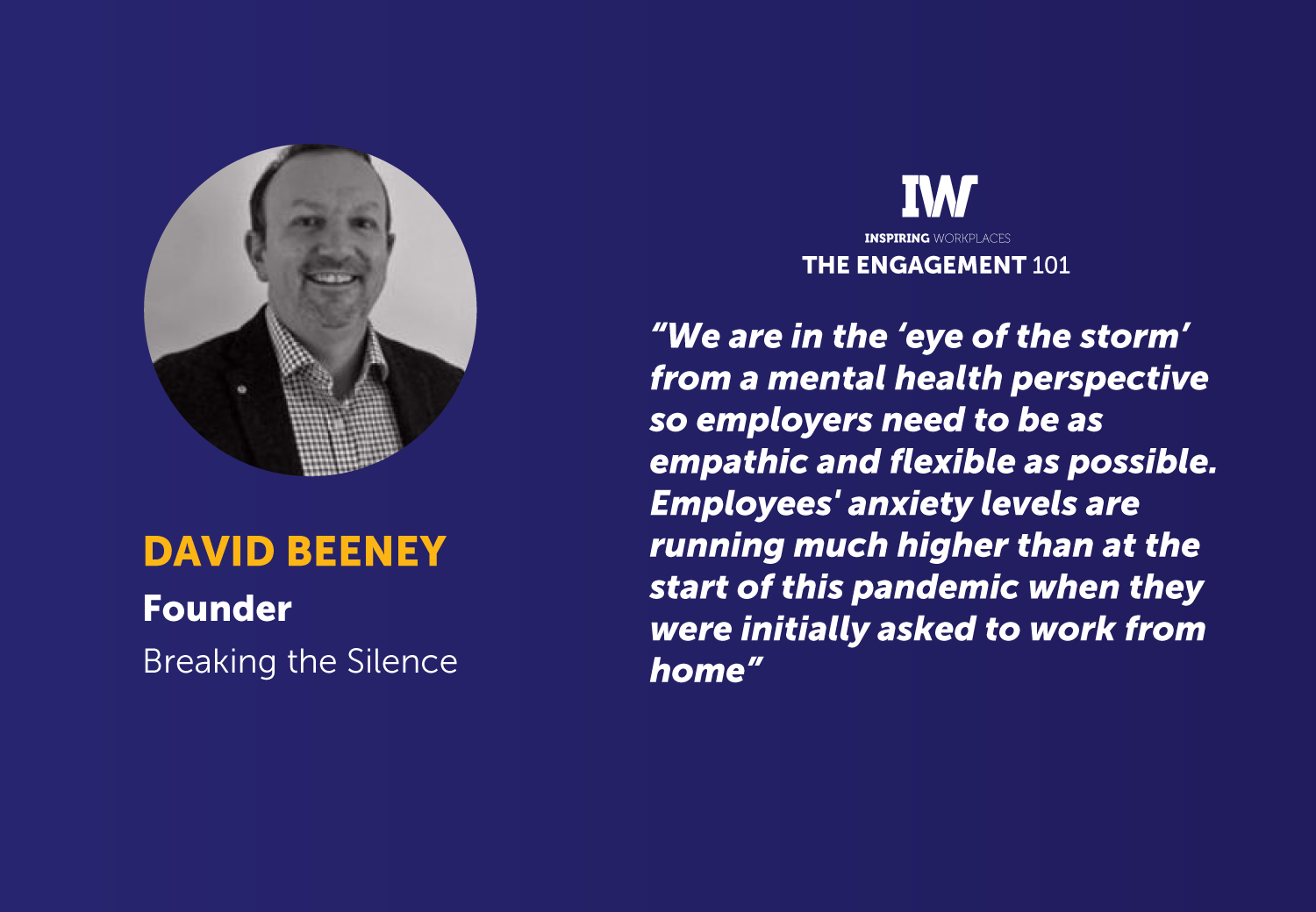
24th May 2021
How to return to the workplace (or not) – in a post covid world – David Beeney

This snippet is part of our Ebook How to return to the workplace (or not) – in a post covid world. Advice and suggestions from our Top 101 influencers. You can download the full eBook with all the advice here.
David Beeney, Founder, Breaking the Silence
We are in the ‘eye of the storm’ from a mental health perspective so employers need to be as empathic and flexible as possible. Employees’ anxiety levels are running much higher than at the start of this pandemic when they were initially asked to work from home. In many cases it is not the thought of being back in the office but the commute to work that is causing them to have sleepless nights. Employees are also fearful that other members of staff will not respect guidelines and they are worried how they will react when this happens.
In my view employers should not rush people back but give everyone complete flexibility over the summer months. This would work for everybody and give employers a real opportunity to test their new ways of working with those who choose to come back to the office straightaway. It would also allow those who are most anxious another three months of working in the safety of their own homes. However, I would advise employers to use this period to encourage everybody to ‘test the water’ and at least come in a few times to see how it feels.
After three months it would seem reasonable to introduce a new hybrid way of working and ask employees to return to their places of work on at least a couple of days per week. This is likely to involve a number of honest conversations explaining why we need to get employees back into the office and why they simply can’t stay working from home on a permanent basis. I fully appreciate that there may be exceptions and that every situation will need to be reviewed on an individual basis.
I consider the early years of my career as some of the best days of my life. The friendships I formed with many colleagues helped shape the person I am today. I had a lot of fun in the office with the banter and camaraderie still making me smile many years later. If we don’t at least attempt to recreate these atmospheres in offices we are going to rob the young people of today of these magical experiences.
From a mental health experts point of view I am also concerned about the impact of not returning to the office:
- Many people are low on energy due to the lack of social interaction, we have underestimated how much energy we used to get from working alongside colleagues on a daily basis
- Many people who started ‘working from home’ are now ‘living at work’ and are completely blurring the lines between the two and feeling mentally exhausted.
- At work we are much more likely to take breaks from our computers and sit and chat socially as opposed to just talking ‘work’ all day.
- Many people are now admitting that they miss their daily commute, they hadn’t realised how much it gave them valuable ‘me’ time.
- Going back to an office is going to ensure that many people get physical exercise and fresh air in their lungs…too many people are not getting out of the homes for days on end!
Many employers are seeking support during these challenging periods from wellbeing consultants like myself. We are able to help them create ‘models’ and ‘processes’ that work for both the employer and employee. These are difficult and unprecedented times and employers should not ‘beat themselves’ up for not knowing all of the answers. Consultants like me are able to share best practice and very current insight. We are able to give all employees a very balanced view from both a mental health and external viewpoint.

